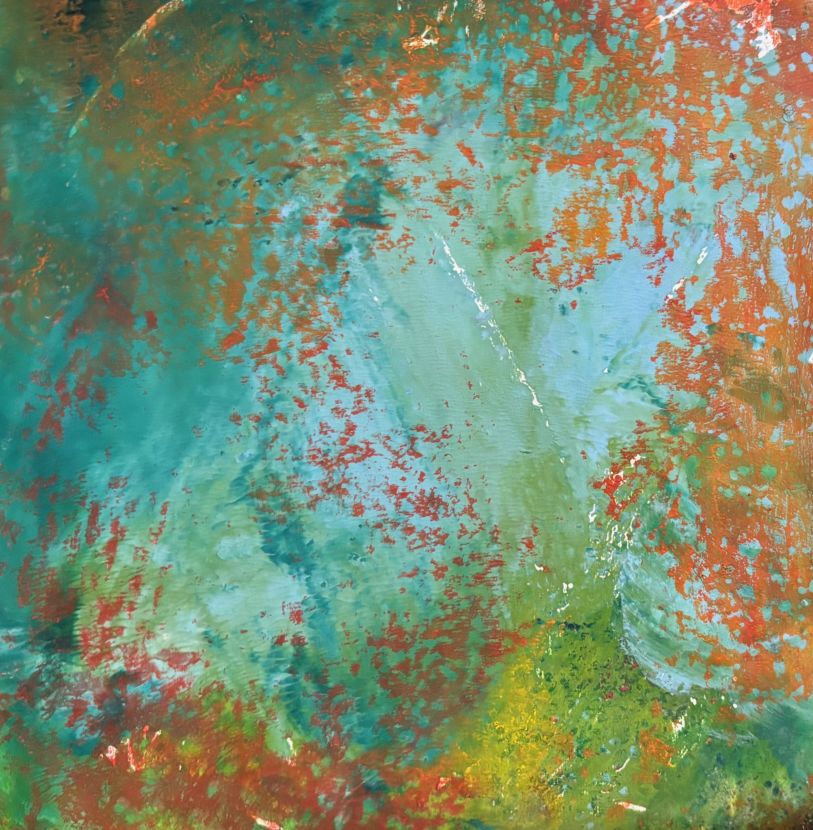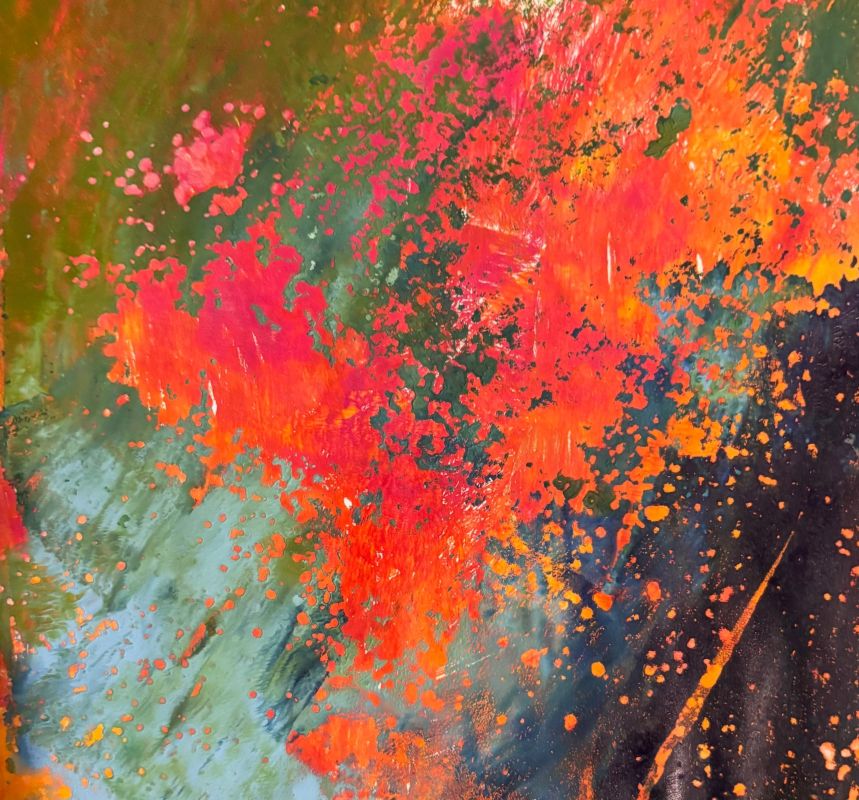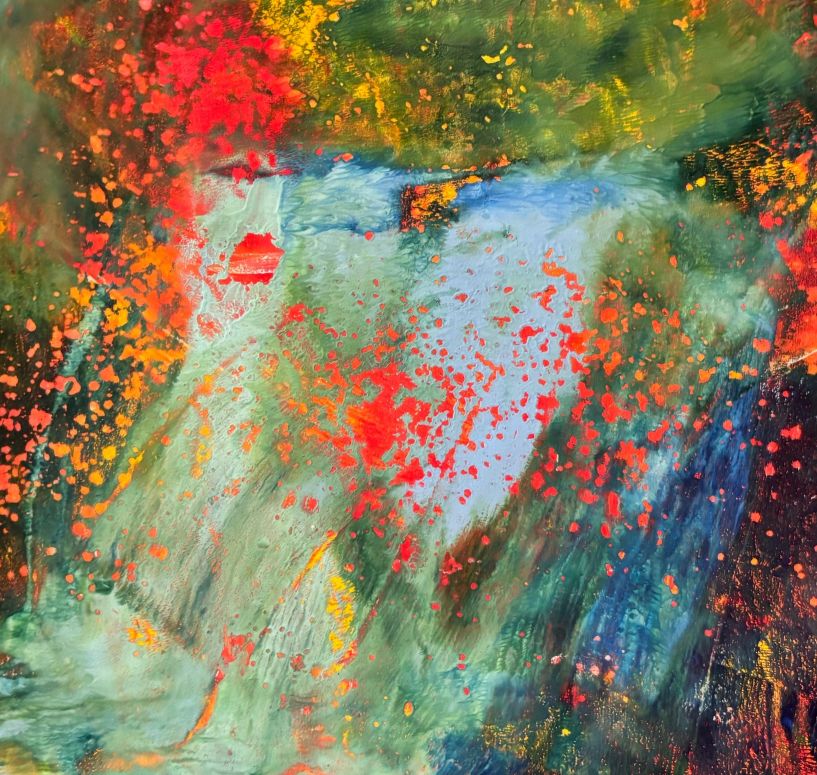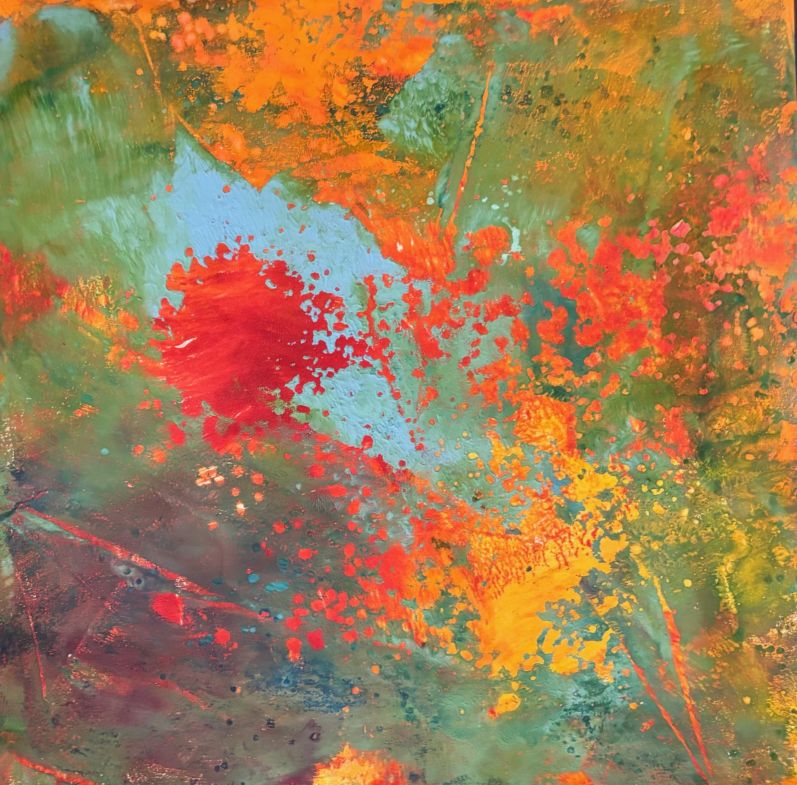Cynthia Yatchman

Some Call the Magic Hour Blue
Our second evening in Budapest, my need presses as if we are new lovers. I keep checking my watch for the magic hour, but it’s all magic: the wish, the tickets, the flight whisking us to this land where we thrive on cake and paprika. A breeze foretells clouds, drizzle, downpours. This is our last clear night, our last chance to see the panoramic shimmer that caught my attention in a magazine five thousand miles and many months ago. In the dusk I vibrate with anticipation and triumph. We are here, we are finding our way, it is as gorgeous as the photos. We pass regal stone lions and walk the great span of the Chain Bridge over the fast, deep Danube. As we make our way up Buda Hill, both shores of the city begin to glimmer. It’s impossible to say if we’re walking toward a fairytale, or away. On the hilltop, it seems a thousand candles have turned everything warm and long-shadowed: cathedral windows, stone columns, sculpted knights. I want to say majestic, but who talks like that? I settle for reaching for your hand.
At home, I have learned about the golden hour and the magic hour, even if the vistas I photograph aren’t often as splendid as the one we’re about to see. The golden hour, just before sunset or after sunrise, bathes the scene in the yellow of egg yolks and marigolds and is best used in nature photography. The magic hour, just after sunset or before sunrise, softens the night sky with pink and gold and blue hues. In a photograph, these hues somehow amplify and blend to make the most of urban settings, of a city’s architecture and lights. The golden and magic hours are misnomers; neither actually lasts sixty minutes. But magic—a power, a spell, an influence, a very pleasant or exciting quality—is the aptly named filter of my yearning. Though I know this city, like my city, like most cities, has a complicated, sometimes violent history.
High above the river, my scarf flutters loose again across my face, obstructing my vision. I can’t forget I’m a tourist in sturdy shoes, but here, in this place of parapets and turrets, I’m also a queen. In the semi-shelter of Fisherman’s Bastion, an ornate fortification built in the late 1800s on the foundation of a real castle a thousand years old, we find a nook out of the wind. Like dozens of people around us and millions before us, we find a clear view to the eastern shore. We wait minutes, and more minutes, for the Earth to turn, for the night sky to deepen, for time to tick. Finally, somewhere deep in the digital boiler room of Budapest, a switch trips. Electrons flow. Across the river a thousand lights begin their faint blooming, the bloom rising and rising until the grand buildings glow. In the glow would you kiss me if I waited? I have my way, as every queen will.
At home in suburban middle Tennessee, the river is lovely but shallow, the lush land is flat, the horizon’s often hidden by buildings and trees. In other words, it’s almost impossible to pull back for a panoramic view. Is this one of the reasons I long to travel? At home, if a bridge was destroyed like the Chain Bridge was by the Nazis, nothing in our city’s history makes me think we’d build it back as beautiful as before. Yes, our town square is quaint, and the arts center is in the marble-staired building that used to be the library that used to be the post office, but so much of our history has been torn down, paved over, replaced by apartment complexes and strip malls. Who are we, that we don’t invest in beauty, in structures that last? Who am I, that I keep living in a place that doesn’t share my values?
We stay on Buda Hill well into full darkness, then take our time finding our way back to Pest: a bus, a tram, a slow stroll to the hotel. Everywhere we look is a picture postcard, illuminated against the night. Still, I scan the sidewalks for a coin, a bottle cap, a button from some sturdy Hungarian’s coat. I’ll go home with hundreds of photos, but I want to pocket a souvenir, something real and unromantic. I want to ask, Could you imagine staying? But I stay silent. We walk hand in hand, something we never do at home.

Making Love in a Double Wide
What I remember most
about your bedroom was
the view through one of
the two windows that looked
out onto a red maple. When
we first met, I would watch
the leaves on that tree change
slowly from their gay summer green
to an autumn maroon, as we lay, naked,
untangled, on weekend afternoons,
divorced, each with a daughter, knowing
even then we had no future together,
you with your horses, boots, and
line dancing, me with my East Coast
education and trench coat draped
over my arm. I never said it would
work, never dreamt of still owning
each other in the spring, when the tree
outside your bedroom window in that
trailer park up north began to drip
with snowmelt, the blossoms
appearing, to me, for the first time,
the noose of time being lifted from
around my neck, the thick ice in
Horsetooth Reservoir breaking up,
cracking in the warmth of the March
sun, while the last galaxies of
tenderness were shared between us.

Simon’s Garden
Marigolds, marigolds, marigolds, he madly sings
with his lovely knotted hands, night perfumes of the one most perfect thing.
Potting half-blind, with a gnarled palm, the doggerel of a crippling love,
washing his impertinent past, grouting, cleaving the wolven half-sounds.
Painting now those frail laryngeal petals, of indestructible meaning,
the fragrance of fresh marigolds that clasp the sun in the tumbling nubby twilight.
Geraniums, geraniums, geraniums he cries, and the sky goes black
as the black-eyed Susans, black tulips, and Simon with his crooked blacked out teeth.
There where he straightens the nasturtium’s spine, and waves his wand,
above the chain of boulevards in the Capucine, whispering in a Celtic song.
Kneeling by the entrance that low lines the ground, lilting toward the heart
that rounds the gouache of thick watercolour, a triptych of night stars.
Lifting his brush into a tiny fury, the enthusiasm of one more hourglass glance
breaking the earth with the sulk of incandescence, a garden of gratitude and clandestine wrath.
Shingly little tiny stones pollinated from a boulder eighty million years old,
the wild quiet coast, pummeled, and the gaping orange peonies, festering with ants.
Tarting up the mole-hilled lot with impatience, petulant monkey flowers, thyme, clover and lavender
and the Durban white daisies with faded buttons, laced by toothless yellow bones.
In the rough box, a gigantic fuchsia, tied tall with a ribbon of string, named after Nana
the old dog he loved so much, whose wagging tail purses still suddenly in his dreams.
Another he calls Christina, hardy as the whizzing of hummingbirds’ wings
gone now, glib and deathless as the sea wolf gilded inside.
And a third spiraling on a trellis, in memory of Suzie Dow, the niece whom so he loved
loathing the dalliance that blesses her unrequited name.
Captain, oh my captain, as slowly he weeps, the corpulent noise, lacelike in the marrow,
the universe at war with war, in every flower, that goes untried, and undrawn there.
In two hundred million years the Himalayas, will be plains, the sea his rotting teeth
and nothing more or less true than the stars, as far as they are near.
The bloom in the vase, vassal and Lord, even now signing the both of us,
“here there be dragons”, they say in an odd vehicle of tongue.
At the edge of the universe, the sparrow kings pluck the dying light, night of the hungry ghosts
the local fisherman chant ex voto, the unanswered prayers of hope and joy.
The skylark seed bursting into climbing flowers, chasing a godless god
wild tropes in the little lanes, collapsing under the weight of the roses.
Dear, dear, loveable friend, may your masked eyes, catch moonlight
in your frayed palsied hand, that holds the homeless there, smiting the structured glacial sounds.
In the long night of human, the wild chant, in the green hangers of every wild flower
that blossom in the last of us.
A bright moon shrinks, shines on stray cats and lover’s untroubled lips
and nothing speaks.

“Somebody to Love”
I bought this car to prove I could
and now, as I wait to turn left
a man exits the Quik-Stop,
black sweats sagging, pantlegs
shirred halfway up his narrow calves.
He’s probably my age, maybe even
a one-time middle-school messiah.
He slouches down the sidewalk,
knees hinging like a marionette
as if in time to Grace Slick,
who’s up so loud the ragtop throbs.
He gestures toward traffic with a tall-boy
then folds to the curb. How I envy him.
My tongue swells as the cold slides
down his throat, jaw slackening,
the world easing up a little.
My sister drank the same brand
when her check ran thin.
The last time I saw her
she drove up to the house, window down.
Come on, she said. It hadn’t been long
since I couldn’t say no, veins drawn tight
brain to toes—so I went inside.
I wish she was here. She’d settle down
on the curb beside him, light a cigarette,
put her hand out for his beer.
And he would give it to her,
the joke passing between their eyes—
me still in my lane
mouthing the words to the song,
you better find somebody to love.